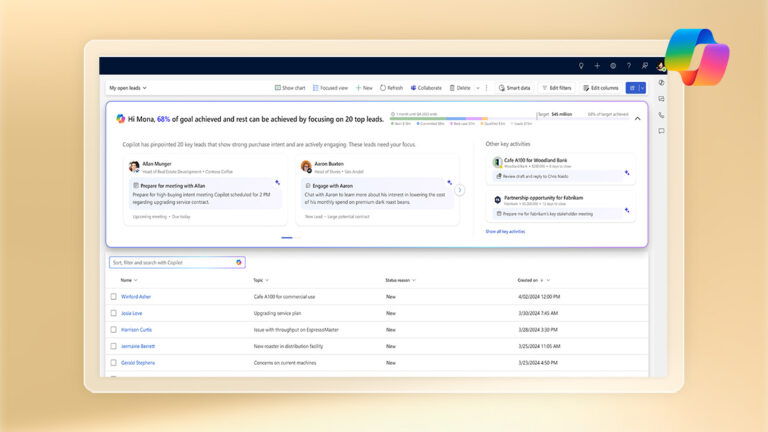When you think of a career in tech, you might assume that a certain level or professional background experience is required. With Salesforce, you’ll hear a different story as they offer free training programs to help you kick-start your tech career.
Military members and spouses can find that their valuable skills are transferable to the tech industry. Salesforce recognizes the potential that military members and their spouses bring to the table, which is why they created Salesforce Military. This dedicated program offers free training and support to active military, veterans, and spouses.
In this article, you’ll read about the inspiring journeys of four service members who have successfully transitioned from the military to Salesforce. They are proof that you’re not alone and that there’s help available to guide you through your own journey. We hope you enjoy reading about their story!
What Is Salesforce Military?
Before we start, it’s important to give an overview of Salesforce Military – it is a free training program that offers military members a clear path to career advancement, and a supportive environment for transitioning into civilian careers.
The program is accessible from anywhere in the world and provides structured learning opportunities, as well as connections to companies that value military experience. Many veterans have found success through Salesforce Military, and their stories provide valuable insights into the benefits of the program.
If you’d like to learn more about Salesforce Military, don’t forget to click here.
Introducing Our Veterans
We are humbly excited to introduce the following veterans, and their experiences with Salesforce Military. They share how the program helped them transition to civilian careers in the Salesforce ecosystem.
Nick served five years as an Officer in the United States Army, where he enjoyed spending time with fellow soldiers, getting to know their backgrounds, and experiences. Being the leader of a small team was extremely rewarding as he was able to influence the well-being of his soldiers’ day-to-day experience, which was something he enjoyed and took very seriously.
During this time, he developed various close friendships in a short period. It speaks volumes to the types of situations military members can often find themselves in, reflecting the character and the level of relationships formed in the armed services.
As Nick was planning his separation from the Army, he felt as if his back was against a wall. He didn’t have much time to make a decision, and the other two paths he had planned fell through – until his friend mentioned he should look into Salesforce Military. He found his way into the ecosystem through the Hiring Our Heroes fellowship, which truly helped him build a foundation in the Salesforce ecosystem, and surrounded him with others going through the same process.
Today, Nick holds various certifications and currently works as Senior Consultant at Capgemini. Through his experience, he is dedicated to mentoring and helping transitioning military members pivot into Salesforce through Veterati.

William was an E4 specialist in the Military Police and served in the Army Reserve for eight years, with one year of active duty in Afghanistan. Then, he spent eight years working in a hospital setting, managing a small security team, and providing support to colleagues.
After the pandemic hit and his job as a hospital security supervisor changed significantly, he began exploring new career options. In fact, William became interested in Salesforce while listening to the ChooseFi podcast.
After pivoting into Salesforce and finding a new career path, he continuously works to expand his knowledge of Salesforce development. Through Merivis and Salesforce Military, William found a position at America’s Warrior Partnership, a nonprofit organization where he has been working for the past year as a Salesforce Administrator.
William is committed to making a positive impact, helping others, and is always looking for ways to expand his knowledge and skills. By now, he has obtained five Salesforce certifications to further his skills and knowledge in the field.

After serving seven years in the Army Reserves, Sergeant (E-5) Karlos was called to active duty in support of Operation Inherent Resolve (OIR) to deploy to Iraq. It was during this time, when he discovered the resources available to service members looking to transition careers – the Salesforce ecosystem quickly peaked his interest.
Prior to deploying overseas, he worked as an Operations Supervisor at a distribution center where he was twice promoted and led teams daily of over 60 employees in safe and efficient operations.
In transition preparation, he was supported by Salesforce Military and other programs, like Military Trailblazer Office Hours, Veterati, and Candorful. This led to him being able to successfully shift gears into the ecosystem, where he’s worked for nearly nine months now. Karlos is passionate about helping others, building meaningful connections, and lifelong learning.
He entered the ecosystem as a Salesforce Administrator. This led to his current role as a Salesforce Associate Consultant at Cirrius Solutions, where he is learning rapidly amongst seasoned Salesforce professionals and veterans. Karlos’s goal is to give back to the community that helped him transition into Salesforce when he needed help. He aims to be a resource and voice for service members as they pivot into this new industry.

Reddzl enlisted for seven years active duty in the Air Force as a Security Forces airman. During his time in the service, he deployed to Jordan for six months and traveled overseas to countries such as Japan, India, and Indonesia. His military duties ranged from law enforcement, security, and logistics, and separated at the rank of Staff Sergeant (E-5).
After transitioning out of the military, Reddzl passed his Salesforce Admin Exam and began his Salesforce career in a consulting firm in Chicago. He implemented Salesforce for nonprofit organizations and continued to expand his expertise by achieving five additional certifications. Reddzl was then employed by Revolution Group as a Salesforce Consultant, and now helps business organizations reach their goals.
Let’s Chat With Our Military Members
What were your plans upon separation and how did you start your Salesforce career?
William: Initially, after leaving the service, I wanted to be a police officer for a local department – but life has a way of not working the way we want. I heard about Salesforce a few times listening to the chooseFi podcast; of course, hearing about talent stacker but chose to ignore it for a long time before a few things made me look into other ways in.
Nick: My plans changed quite a bit, and for a while, I had no plans or options. I was on the fence about staying in, or getting out about six months before my transition date – as you can imagine, not a fun place to be nor ideal for setting yourself up for success.
Ultimately, a lot of dominos fell in different places. I got an email from Hiring Our Heroes about this Salesforce Fellowship Program, which supported not only my timeline due to my poor planning, but also my interests.
Reddzl: Upon separating from the military, my plan was to finish my Computer Science degree. While in school during the pandemic, things became really hard – I couldn’t connect or feel focused on my studies. My wife, at the time, introduced me to Salesforce, and it immediately interested me.
Karlos: Prior to learning about Salesforce, I had plans to get into overseas government contracting. While stationed overseas, my close friend and roommate at the time were working on an assignment on the history and success of the Salesforce platform. Throughout his studies, I began to listen more and more to his discoveries – before I eventually started to do my own research to find out if it was something I could transition into.

What about the Salesforce Military community helped you during your transition?
William: I liked the supportive aspect of Salesforce, and that really drew me in as it was something I was lacking since separating. Salesforce Military was instrumental in my success! It provides a direct structure to my study and allows me to try to stay on track for a single certification, or span out to many of my own choosing.
Nick: I didn’t really know what I wanted to do. I was one of those people that always said “Yeah, I’ll do anything”, “I want to lead projects or small teams”, or “Something project or program management” – because I didn’t know anything else.
After learning a bit about Salesforce, attending some community events, like Military Trailblazer Office Hours, 1:1 networking with various people in Salesforce careers, and the accessibility of learning provided by Salesforce – a switch somewhere flipped, and it seemed like an obvious decision.
Reddzl: I went with Salesforce because they had plenty of resources that made me feel welcomed toward its path. There were free training resources and paid certification vouchers that helped motivate me to get my first Salesforce Administrator certification.
Also, the Trailhead Community allowed me to connect with other military Trailblazers that were learning as well. Knowing that there are other people with military backgrounds assured me that I was headed in the right direction for my next career.
Karlos: When I began the lengthy process of transitioning back stateside, there was a program that I was required to complete – Transition Assistance Program. I quickly realized how valuable the information was and decided to pay close attention. By this time, I had done a good amount of research on the Salesforce ecosystem. I was blown away by the number of resources that were available to service members to skill up in various industries.
What parts of the transition into Salesforce was challenging for you?
William: Understanding that no one knew how my previous work translated to the civilian sector. No matter how I explained it, I was always just a guard or a cop to anyone, and nothing more. No one sees the transferable skills or more than we can bring to the table unless we start the conversation with them.
Nick: I think the hardest part is knowing what you want to do and figuring out what to do to get that thing. Inaction is one of the biggest impediments of military transitions – the old “I’ll worry about it when I get there.”
Everyone is different but the hard part for me was doing a lot of self-reflection, and figuring out what I wanted the next chapter of my life to look like. Re-defining what work should and can be, and then finding a landing place where my wants and values align with what I would be doing as an employee.
Also, your first job doesn’t need to be the job you have for the rest of your life, and it’s totally OK if you don’t know the things I mentioned above. Everyone has different goals and it’s OK if you figure those out as you go. My goal was for work to be something I enjoy, but doesn’t interrupt the ‘ebb and flow’ of my life and other interests.
Reddzl: The most challenging part of the transition from a military workforce was learning how to embrace curiosity. In the military, the culture in a police squadron was to receive and complete orders. We weren’t encouraged to ask questions about it. If we did, our superiors could sometimes perceive it as a sense of defiance. In the consulting world, it was the direct opposite. It was in our best interest to ask questions, so that we can understand problems and help clients on a deeper level.
Karlos: I found it difficult to effectively translate the positions held and experience that I had gained in the Army. There were a lot of successful projects and operations that I managed – but from complex acronyms to confusing titles, sometimes it can be difficult to effectively highlight your talent and impact.

What skillets have helped you become successful in your Salesforce career?
William: Adaptability! They used to joke that being an MP actually meant that we are Multi-Purpose. One minute we are police, the next we are riot control, the next we are traffic, and in another breath, could be sent on deployment similar to infantry. Being able to adapt to any task thrown at me, I think, is what really helped me think through all the changes I’ve had to make and things I’ve had to learn.
Nick: I’d say a combination of discipline and the desire to learn. For the learning and training piece, having an invested interest in my own learning and the discipline to keep wanting to learn has served me well. Also, the military fosters a ‘learning’ environment – whether you want to learn or not. And I’m not talking about PME.
You need to be able to learn and adjust to succeed, because there are a lot of things you’ve never experienced that you were expected to know. Whether that’s through asking for help, googling, reading manuals, or some other resource – we all had to not only learn, but figure out how to learn too.
Reddzl: Attention to detail, observing and capturing information as best as I can. Serving my clients better. Stress and pressure management. Handling technical debt and finding fuel to power through it all. Physical and mental fitness, to push through even the toughest concepts to learn. Adaptability, to be able to work in any environment and work with different people remotely.
Karlos: I’ve learned that time management is important not only professionally, but also in my everyday life. I block off my calendar per each area I need to work on, and having that skill from the military has really helped me advance in my career in Salesforce. Along with that, being resilient has helped me during hard times when I feel that I can’t learn a certain skill. I remember my training, and it’s enabled me to push through negative mental talk. I am able to push forward and deliver.
What are you most proud of looking back on your journey?
William: Being able to say, despite the stresses or changes, that I actually am enjoying what I do. Finding meaningful joy in my work definitely makes me proud.
Nick: This relates to an answer above, but I think my ability to be able to put the work in early on to figure out what I wanted, and then execute on it.
Seeing where I am a year later, I am very proud that my image of my future has manifested into reality. As you’re going through the transition, having a ton of 1:1 calls, studying for certifications, doing Trailhead, and whatever else – sometimes it all feels pointless. But I promise it isn’t. Trust the process.
Reddzl: I am proud of the experience and growth I had through serving my clients. I worked with each one with their own unique challenges. I appreciate the opportunity of taking the journey with them and learning along the way.
Karlos: I am most proud of the fact that I have been able to take the lessons and experience shared with me, and pay them forward to others in the Salesforce ecosystem.

What advice do you have for transitioning service members or spouses moving into Salesforce?
William: Learn it at your own pace! I crammed hard for my first Admin certification trying to reach the deadline for Hiring Our Heroes. But doing so, also made me forget some things that were very important that I had to go back and relearn.
You are on no one’s schedule but your own, and beyond that, finding your niche and your joy. It’s looking at yourself and being able to look hard, for instance, at your resume – see what does not translate and either translate it to fit the new role, or remove it altogether. It’s better to have a concise resume than a bunch of fluff that no one will read.
Nick: This isn’t Salesforce specific, more just life advice. Manage your expectations appropriately. I was severely disappointed in my experience in the military, because I had high expectations.
The military can be, and is, a great career and I still wouldn’t change anything. But I was the biggest contributor to my own suffering sometimes, because it wasn’t what I thought it would be. If you’ve made it this far and decided Salesforce is the way you want to go, my next piece of advice for you would be to aggressively network, so you can figure out what sort of role or industry you might like.
And if you don’t know what roles and industries are out there, that’s fine. Start somewhere, talk to people, and then set up calls with people in different roles (Veterati is a great place to start).
Reddzl: Military folks were used to being told what to do. In this world, we get to control where our career takes us, so I would recommend taking full control of the steering wheel.
Reach out to the community and ask for help and advice. There are a lot of unknowns with transitioning from military to civilian workforce – so take the opportunity to learn from other people that have gone through that experience already. It is easy to lose sight of goals and become isolated.
Karlos: Don’t wait until you are transitioning out to start establishing connections. The sooner that you start networking, the better.
It is also recommended by many in the ecosystem that you document your learning journey. For example, creating content on how you overcame modules in Trailhead and working through the challenges as you learn the features has multiple advantages. It solidifies concepts as you are learning and gives employers an opportunity to get a sense of your character.
Summary
Salesforce Military recognizes that transitioning into the tech industry can be both exhilarating and daunting, with an uncertain path ahead. However, they are committed to supporting the growth and development of their community by providing a reliable resource throughout one’s career.
If you are currently making this transition, rest assured that you are not alone – many others have been in your shoes. We hope that the inspiring stories shared by our veterans have encouraged you to embark on a fulfilling tech career. We extend our gratitude to our volunteers for their contributions and dedication to giving back to the community.
Important Resources to Highlight

As you most likely have gathered from this article, Salesforce Military works hard to support incoming and current military members and spouses. We want to highlight Military Trailblazer office hours, which provide weekly live sessions focused to help you achieve your professional development, as well as career-related goals completely run by members of the Salesforce military community.
You can register to attend the various sessions hosted below. You will find career, social, and technical resources for career. Don’t forget to subscribe to their channels so you don’t miss anything!











